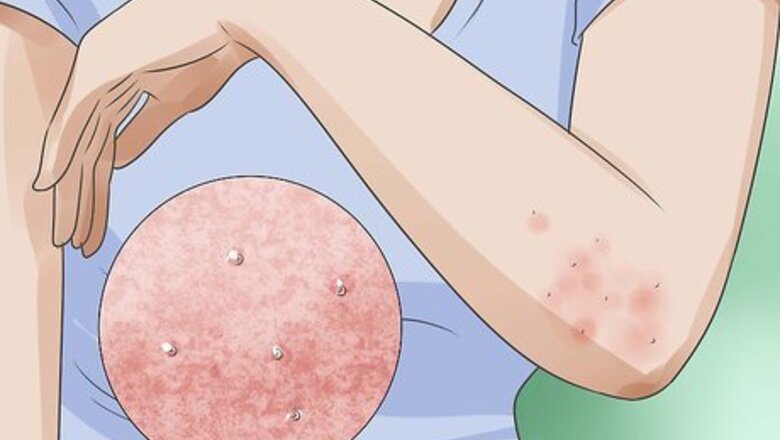
views
Identifying the Physical Symptoms
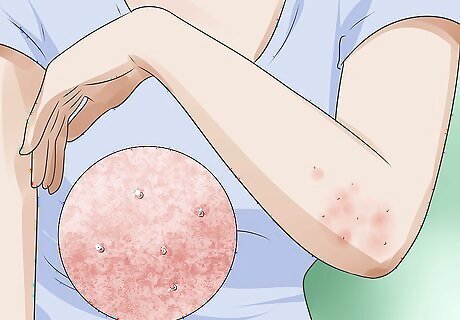
Document skin rashes or sores. People with Morgellons often report that they have chronic skin rashes. These skin rashes are often accompanied with intense itching. Some people with Morgellons often report sores instead of rashes. But regardless of whether it is a sore or a rash, both are one of the primary symptoms of Morgellons. If you develop sores or rashes for an unknown reason, contact a medical professional. Take a photograph of your sores. Do not scratch at or pick your sores or rashes. As with any new rash or skin lesion, carefully think back to when you first noted symptoms and any changes in your routine that might explain it. This may include food, beverages, outside activities, hobbies, personal care products and clothes, to name just a few things that might trigger some sort of irritation or reaction. If you suspect Morgellons, avoid any homeopathic treatments and contact a medical professional immediately.
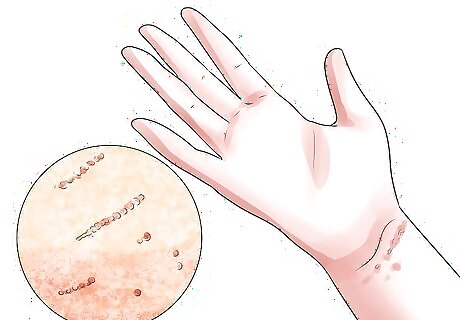
Describe crawling underneath the skin. Many people who have been diagnosed with Morgellons report that they feel a crawling sensation underneath their skin. They say that this sensation feels like there are insects or worms moving underneath their skin. This is often paired with biting or stinging sensations under the skin. This is one of the telltale symptoms of Morgellons disease. Avoid scratching if you exhibit this symptom.
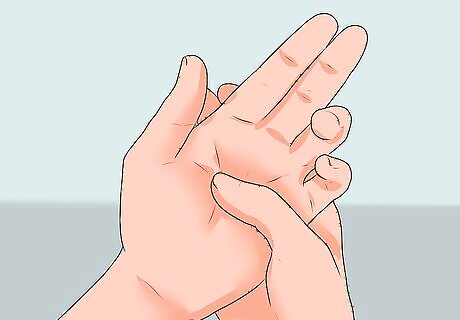
Look out for strange growths on or under the skin. Common skin disturbances associated with Morgellons include granule-like materials, threads, fibers on or beneath the skin. People struck with Morgellons often develop fibers or threads growing out of sores on their skin. The appearance of granule-like fibers are perhaps the most notable symptom of Morgellons. The cause of the fibers is yet unknown. Most often the fibers are black in appearance. The fibers sometimes appear clear, white, blue, or black. Less often, they are red, pink, green, or gold. They might have a metallic look to them. Make sure that your Morgellons fibers are not remnants of medical bandages, clothing, or other household fabrics.
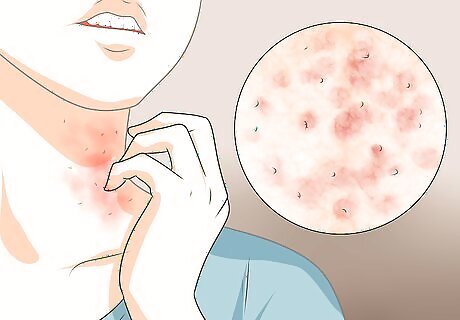
Avoid confusing Morgellons with other conditions. There are a substantial number of other conditions that can cause itching and rashes or sores which would be considered before Morgellons. This is because the symptoms of Morgellons are relatively common and general. As a result, in order to help yourself identify if you have Morgellons, you should consider other conditions that can have similar symptoms. Consider that your physical symptoms might indicate: Toxoplasmosis Pinworm infection Other parasitic infections Fibromyalgia Other fungal and bacteria caused skin diseases
Spotting Neurological and Psychological Symptoms
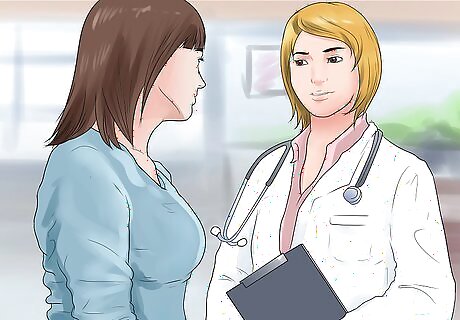
Tell your doctor if you feel fatigued. People with Morgellons often report feeling extremely fatigued. This severe feeling of fatigue is not one that can be alleviated through rest and nutrition, but is chronic and persistent. Fatigue, then, is perhaps one of the most debilitating aspects of Morgellons disease.
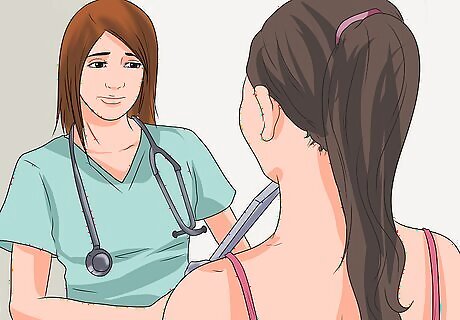
Call your doctor if you experience visual or aural disturbances. Many Morgellons victims report experiencing visual or aural disturbances. Visual disturbances might include blurred vision or other problems seeing clearly. Aural disturbances include tinnitus or a ringing in the ears. These visual or aural disturbances may or may not be directly related to Morgellons. Consult your doctor if you suspect that they are in fact caused by Morgellons. Visual and aural disturbances alone are not symptoms of Morgellons. Visual and aural disturbances must be paired with other physical symptoms to be an indication of Morgellons. Before suspecting Morgellons, try to rule out other potentially life-threatening causes.
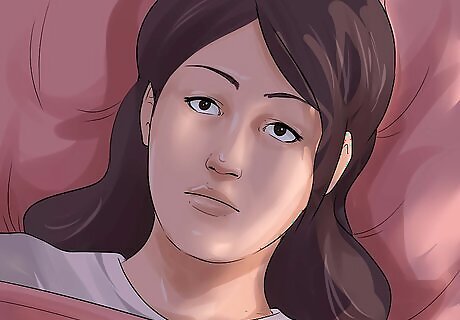
Report anxiety. Contact your doctor if you suddenly feel anxious or prone to panic attacks. Some people diagnosed with Morgellons have increased anxiety and are prone to panic attacks. It’s not clear if this anxiety is a direct symptom of Morgellons or is a result of the debilitating effects on people who struggle with it.
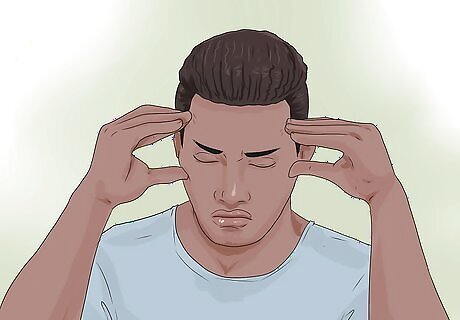
Tell your doctor if you are suffering from decreased intellectual abilities. People reporting the physical symptoms of Morgellons also report decreased intellectual capacity. Morgellons sufferers, then, are not simply crippled by physical manifestations of the disease, but are also harmed by its intellectual symptoms. Consider: Morgellons victims often report feeling confusion. Morgellons victims report short-term memory loss. Morgellons victims sometimes have difficulty concentrating.
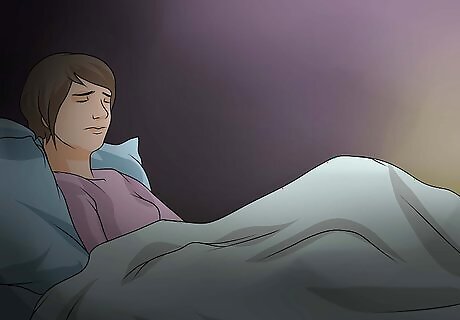
Seek help if you are struck by depression. Many Morgellons victims also suffer from depression. At this point, it is unclear as to whether depression is brought on because of the effects of Morgellons or if Morgellons is a manifestation of depression and other psychological problems. Make sure to see your mental health specialist if you suspect your depression is somehow linked to Morgellons.
Understanding Morgellons
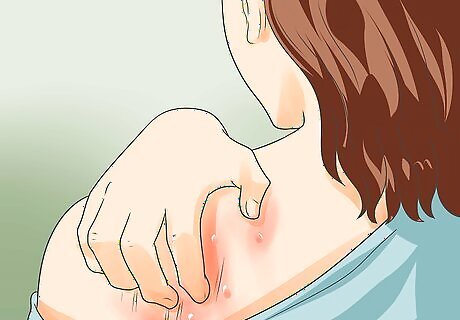
Know that Morgellons is a controversial disease. Since its relatively recent appearance less than two decades ago, debate has raged between doctors and in the scientific community as to whether Morgellons is a physical disease or a mental illness. While some doctors believe that sufferers of Morgellons are indeed plagued by a real physical disease, others believe that Morgellons is a delusion. Advocates of the idea of Morgellons as a mental illness point to: the fact that sores and other physical symptoms are a result of picking, scratching, and are generally self-inflicted. Fibers that appear on Morgellons victims are cotton and other medical products introduced by Morgellons sufferers in their effort to care for their self-inflicted wounds. Doctors cannot identify a source of the disease or isolate bacteria, fungal, or viral agents responsible.
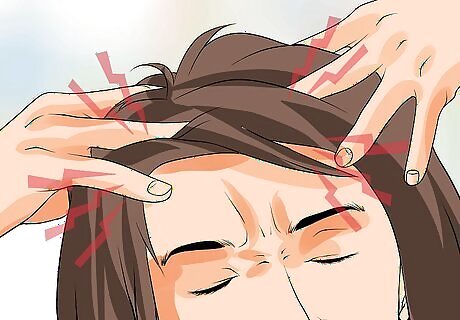
Understand the connection to psychological issues. Many researchers have concluded that Morgellons shares a close association with psychiatric conditions. It is unclear, however, if the physical symptoms of Morgellons can be completely attributed to psychological causes. Consult your mental health specialist if you suspect your Morgellons symptoms are related to psychological trauma or other issues. Morgellons symptoms could be related to: Chronic fatigue syndrome Gulf War syndrome Post traumatic stress syndrome
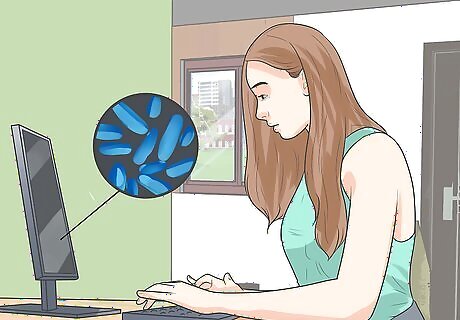
Learn about delusional parasitosis. Some doctors have connected Morgellons with delusional parasitosis. Delusional parasitosis is when someone mistakenly thinks that their body is infested with parasites. Delusional parasitosis explains a large number of the symptoms reported by Morgellons patients. As a result, anyone trying to arrive at a proper diagnosis should consider delusional parasitosis when evaluating a Morgellons case. Delusional parasitosis could be caused by psychological problems that do not involve a delusion of parasites. Delusional parasitosis has been associated with obsessive compulsive disorder (OCD). OCD-related delusional parasitosis could explain Morgellons' psychological and physical symptoms, specifically the obsession with feelings of itching or movement under the skin.
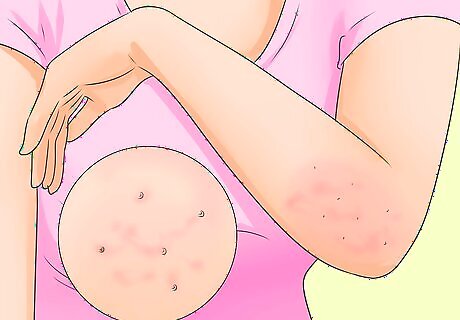
Identify if you fit into the right demographic. Certain demographics, people from certain regions, and people with certain medical and psychological backgrounds are struck with Morgellons at a higher rate than others. As a result, you should consider your age, ethnicity, region, and other factors when evaluating whether you exhibit symptoms of the disease. Originally it was described in children and more recently in women. Women 35 to 50 years old tend to develop Morgellons at higher rates than other groups. Many Morgellons cases have been reported in Texas, Florida, and California. Half of Morgellons victims have a history of depression or drug abuse.




















Comments
0 comment